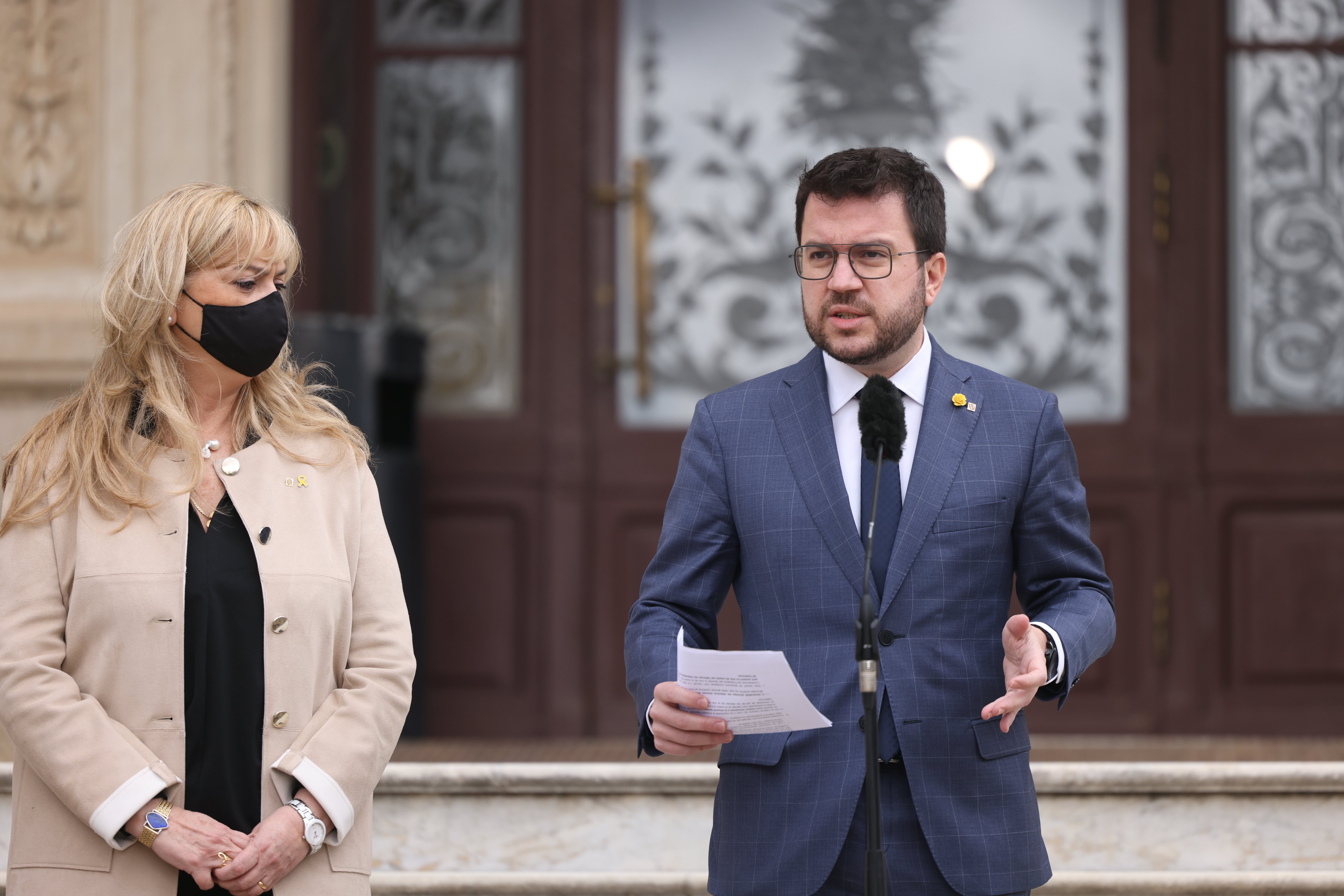The Catalan president, Pere Aragonès, has announced this Thursday that, in the end, he will be attending the conference of Spain's regional leaders in La Palma this Sunday to address the consequences of the war in Ukraine. Aragonès argued that although the Generalitat of Catalonia always prioritizes bilateral relations with the Spanish government, this is an "exceptional" situation and "maximum coordination" is needed. In his opinion, decisions must come out of this meeting. "It's time for bold measures," he said. "When [the conflict] is impacting on household electricity bills, when companies are stopping their production and when we have been committed for days to receiving refugees, then in this situation, we will be everywhere," he concluded. At a press conference after visiting the Xanascat hostel in Barcelona, where a group of Ukrainian citizens are being accommodated, he called for the meeting "to be a genuine space for work, coordination and agreements" on the humanitarian and economic front.
The letter sent by president Aragonès to Spanish PM Sánchez informing him of his decision on the Conference of Presidents
Economic and social measures
The Spanish government and the leaders of Spain's autonomous communities will thus meet this Sunday, March 13th on the island of La Palma to discuss the economic and social measures resulting from the Russian invasion of Ukraine, which will be incorporated as the most important point on the agenda of this multilateral forum. In fact, the invasion of Ukraine by Vladimir Putin has already forced the Spanish PM to cancel the conference once, just 24 hours before its planned date on Friday 25th February. However, the Spanish government decided this week, after talking to the regional leaders, to reconvene this forum on the island affected by last year's eruption by the Cumbre Vieja volcano.
Aragonés said that his reason for attending was precisely the incorporation of the Ukrainian war as the main point to be addressed at this meeting of presidents, "in the face of an exceptional situation, exceptional participation is needed." He explained that even though on other occasions "we have expressed doubts, we need to give a response up to the level of what the country needs" in this new crisis. At La Palma he will argue that it is essential to work with full "coordination" between administrations and to create a "specific fund" to respond to a need for reception of Ukrainian refugees that goes "beyond schooling and housing". According to sources in the Catalan presidency department, this is a decision taken directly by Aragonès, since the issue is a war in Europe that has direct effects on Catalonia, not only with regard to refugees, but also energy costs.
Catalan president Pere Aragonès: "We'll be there to give a response that is up to the level of what Catalonia needs"
Refugees in Catalonia
A total of around 5,000 refugees from the Ukrainian conflict have already arrived in Catalonia, the Catalan government estimated on Thursday afternoon after consulting with organizations like the Red Cross as well as the Ukrainian consul in Barcelona. Many arrive at main transport terminuses in Barcelona, with the Red Cross receiving refugees at both the main rail station of Barcelona-Sants and the airport at El Prat. To give one example, on Sunday, 227 Ukrainians arrived at the airport. Many of those arriving have contacts in the city that give them a place to live, but the ONG underlines that at present 1 in 5 needs accommodation. In order to respond, the organization has about 400 beds.
As for the announced macroreception centre to be set up in Barcelona, Aragonès said that "the Spanish ministry is in charge of this matter". "Unlike in other migration crises, refugees have freedom of movement within Europe. We will have to make decisions as things evolve, but the most important aspect right now is to be able to work for accommodation," he said. As for the escalation of prices faced in Catalonia, Aragonès says that "we must be aware that the consequences of the conflict will last for years. We must move towards energy self-sufficiency." Regarding yesterday's statements by the EU's high representative for foreign affairs, Josep Borrell, who advised the population to "turn down the heating", Aragonés stated that he wouldn't comment on what others do, but that "we must take all the measures we have at our disposal to curb this escalation of prices."

